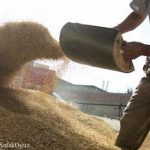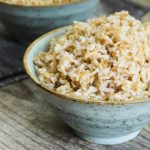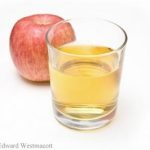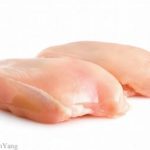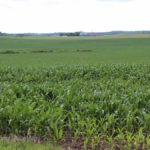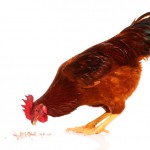>On September 30, 2013, the Food and Drug Administration responded to a Center for Food Safety petition, calling for the immediate withdrawal of the "vast majority of arsenic-containing compounds used as feed additives for chicken, turkeys and hogs." A lawsuit filed by that agency, along with the Institute for Agriculture and Trade Policy, Food & Water Watch, Center for Environmental Health, and Health Care Without Harm, among others, compelled the response. FDA is going to withdraw three of the four arsenicals and all drug approvals related to those compounds. That means of the 101 drug approvals for arsenic-based products, 98 will be withdrawn. Paige Tomaselli, senior attorney with the Center for Food Safety, said in a statement, "the withdrawal of these harmful feed additives … [Read more...]
Consumers Union Advice About Arsenic in Rice
Reports about arsenic levels in rice are troubling to many people, especially families with young children and those who have celiac disease or an intolerance to gluten. If you're wondering how to limit your exposure, Consumers Union, the policy and action division of Consumer Reports, has specific recommendations. These recommendations first appeared in a November 2012 Consumer Reports article about arsenic levels in rice and rice products commonly found on grocery store shelves. The report prompted calls to action by members of Congress and investigation by the U.S. Food and Drug Administration (FDA) which last week released data about its probe. The agency concluded that these products do not pose a short-term health risk, that a study of exposure over the long term is necessary, and … [Read more...]
FDA: Arsenic In Rice Doesn’t Pose Short-Term Health Issue
Arsenic levels in rice and rice products do not pose a short-term health risk, the U.S. Food and Drug Administration (FDA) has concluded after studying thousands of samples. But the health effects of long-term exposure to the low amounts of arsenic in these products is unknown, and that will be the agency's next area of focus. There are two types of arsenic, organic and inorganic. Both occur naturally in the environment and are found in water, air, soil and foods. According to the Centers for Disease Control and Prevention (CDC), organic arsenic is found mainly in fish and shellfish. Inorganic arsenic, the more toxic type, is normally found in soil, sediment, and groundwater. From these sources, inorganic arsenic can make its way on to foods including rice. The FDA analyzed more … [Read more...]
FDA Proposes Arsenic Limit for Apple Juice, Seeks Comment
Eighteen months after a Consumer Reports story on inorganic arsenic in apple juice triggered a wave of concern from consumers and demands for action from lawmakers, the U.S. Food and Drug Administration has proposed a limit on the acceptable level of inorganic arsenic, a carcinogen, in apple juice. The FDA has set an “action level” of 10 parts per billion (ppb), the same level set by the U.S. Environmental Protection Agency (EPA) for arsenic in drinking water. The threshold, which is based on lifetime exposure, is meant to provide guidance for the industry, and a trigger level for enforcement action.The limit is based on the FDA’s 2012 analysis of 94 samples of arsenic in apple juice that found 95 percent of samples contained less than10 ppb total arsenic and 100 percent of samples … [Read more...]
Johns Hopkins Center for a Livable Future Studies Arsenic in Chicken
A study published in Environmental Health Perspectives by the Johns Hopkins Center for a Livable Future (CLF) last week found that feeding arsenicals to chicken increases the concentrations of inorganic arsenic, a known carcinogen, in chicken breast meat. This is the first study that shows concentrations of specific forms of arsenic in retail chicken meat and the first to compare those concentrations according to whether the poultry was raised with arsenical drugs. Researchers bought conventional, antibiotic-free, and USDA organic chicken samples from 10 U.S. cities between December 2010 and June 2011, when an arsenic-based drug manufactured by Pfizer, called roxarsone, was available to poultry companies. Scientists not only found inorganic arsenic in the meat; they also found residual … [Read more...]
Food & Water Watch Sues FDA Over Ignored FOIA Request
The U.S. Food and Drug Administration (FDA) has unlawfully ignored a Freedom of Information Act (FOIA) request for records about drugs added to poultry feed, a lawsuit filed today by consumer advocacy group Food & Water Watch alleges. The group, along with Center for a Livable Future (CLF), submitted the FOIA request about arsenic-based drugs added to poultry feed last year. The groups say this type of poultry feed could pose a public health risk. Last week, CLF announced results of a new study that found that if chickens are raised with arsenic-based drugs, it raises the level of inorganic arsenic, which causes cancer, in their meat. In June 2011, Pfizer announced it was voluntarily suspending sales of the animal drug 3-Nitro (Roxarsone) after FDA scientists found that feeding the … [Read more...]
Government Action on Arsenical Pesticides Delayed
Consumers Union, an arm of Consumer Reports, has called on the EPA to ban arsenic-containing pesticides. A National Academy of Sciences/National Research Council (NAS/NRC) meeting being held today "will be the start of a process that could delay government action for at least three years on the risks of arsenic," according to the press release. Exposure to inorganic arsenic is linked to cancer. The National Toxicology Program has classified inorganic arsenic compounds as "known to be a human carcinogen." The government is reviewing the cancer and non-cancer risks from inorganic arsenic after the Environmental Protection Agency (EPA) was directed by Congress to stop work on its prior cancer risk assessment after several years of research. Dr. Michael Hansen, Senior Scientist at … [Read more...]
Maryland Bans Arsenic in Chicken Feed
Last May, Food Poisoning Bulletin reported on the state of Maryland banning the use of arsenic in chicken feed. That bill became law on January 1, 2013. Poultry farmers have used arsenic in chicken feed since the 1940s. It treats the disease coccidiosis, which can cause anemia and diarrhea and restricts growth. The FDA approved roxarsone (3-Nitro-W), an arsenic-based drug, for use in chicken feed in 1944. Chicks gain weight faster when fed that product, and chicken flesh was pinker. The FDA approved the use of roxarsone to promote growth and improve chicken flesh pigmentation in 1951. But new scientific research has found that arsenic in poultry feed poses a risk to people that is much higher than originally thought. Chronic arsenic exposure is associated with increased bladder, … [Read more...]
Three Members of Congress Introduce Bill to Limit Arsenic in Rice
Three members of Congress have introduced a bill to limit the levels of arsenic in rice. Consumer Reports released a report that will appear in the November 2012 issue of their magazine stating that their tests have found rice and foods made from rice, including infant rice cereals, have the most toxic form of arsenic. No federal limits exist for arsenic in most foods. Make sure to look at the Consumer Reports story carefully; at the end they have a chart that lists the rice and rice products they tested and arsenic levels found. Representatives Rosa DeLauro (D-CT), Frank Pallone (D-NJ), and Nita Lowey (D-NY) have introduced the R.I.C.E. Act (Reducing food based Inorganic and organic Compounds Exposure Act). It requires the FDA to set a "maximum permissible level of arsenic in rice and … [Read more...]
FDA Report on Arsenic in Rice
The FDA has just released a report on its investigation into arsenic in rice. We told you about this issue this past spring, when questions surfaced about brown rice syrup used in some baby formulas and in products such as granola bars. Nature's One, a baby food manufacturer, has announced a goal for zero arsenic in baby formula. Brown rice syrup is often used as a substitute for high fructose corn syrup as a sweetener in processed foods. Rice naturally contains arsenic because it absorbs it as it grows. Most rice is grown on former cotton fields, where arsenic was used as a pesticide before government regulations banned it. Arsenic is a heavy metal that stays in soil for decades. Inorganic arsenic is the dangerous form of the metal, classified as a Group A human carcinogen. The EPA … [Read more...]
